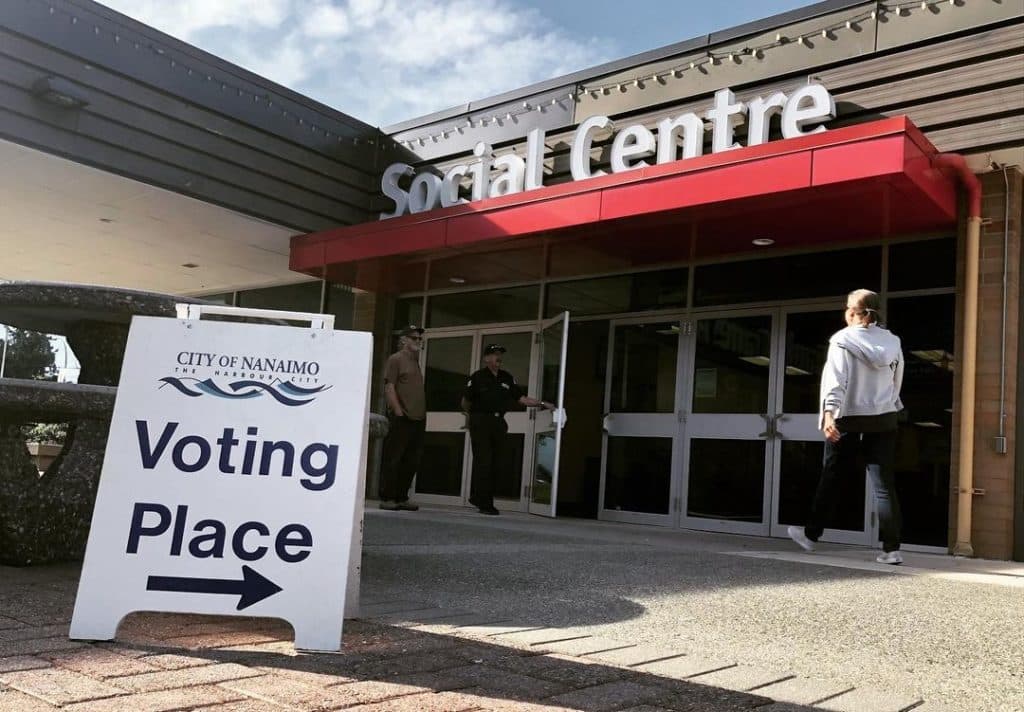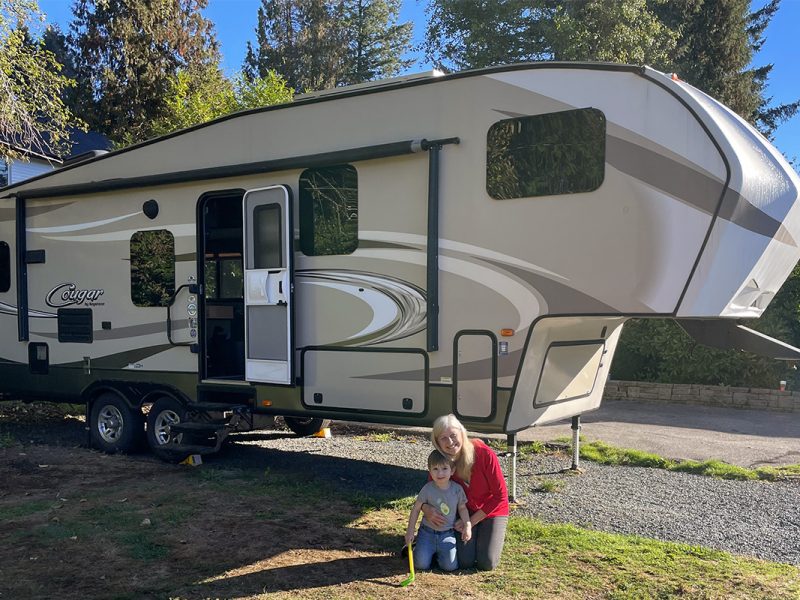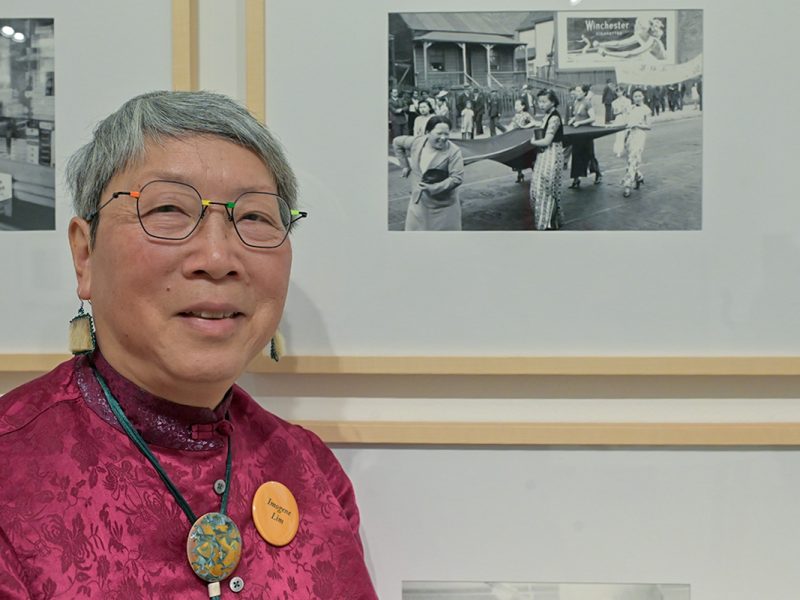
Less than a quarter of Nanaimo residents eligible to vote participated in the local election, a stark contrast to 2018’s 40.8 per cent. Similar percentages were seen across municipalities in B.C. While fewer people tend to show up to vote in local elections compared to federal and provincial elections for a number of reasons, some experts warned about voter apathy before polls even opened.
But for some Nanaimo residents, the decision not to vote wasn’t out of lack of interest, enthusiasm, or concern. Community interviews with a range of would-be-voters found online revealed health restraints, accessibility challenges and feelings of disconnect from municipal governance as factors.
For Violet Russell, a Reddit user who responded to a public post from The Discourse, says personal factors made voting inaccessible. “I’m 37 weeks pregnant and am barely holding it together with work, kids, home. I had intended to vote but can barely walk at the moment and couldn’t bring myself to physically go to a polling station. I decided to vote by mail, then realized that I missed the cutoff by one day. So really, it was overwhelm and poor planning.”
In the 2019 federal election, 42 per cent of youth aged 18 to 30 didn’t vote due to “obligations related to everyday life,” according to Statistics Canada. One-third of people over the age of 31 also reported this as the main reason for not voting. Barriers included being away from home, personal health and disability, and conflicting work or school schedules.
Facebook user Desiree Douglas also grappled with health barriers that made voting impossible on election day. “It was unintentional as I had planned to vote in person but I ended up in a Multiple Sclerosis flare-up the day of voting. Had I known this would happen or had I been more prepared, I would have done a mail-in ballot but I royally shit the bed with this local election.”
For some, the latest round of COVID-19 kept them from voting, including Helene Briggs. “I came down with it too late to ask for mail-in, so I stayed home and did not vote,” the older Nanaimo resident commented on a Facebook post asking why some residents didn’t vote.
Sheila Gurrie, the City of Nanaimo’s chief election officer, notes that COVID was a barrier to some and a worry for volunteers even through they offered access to curbside voting, where electoral officials come out to your vehicle to help you vote.
“We did advertise [curbside voting]. However, that’s kind of a catch-22 because one of the complaints I got from presiding election officials at one of our polling stations is we still have to go to their cars and interact with them, and some were seriously sick,” she says. “That’s something that I need to think about for next time. Because technically, if you have COVID, or if you’re really sick, the message out there is stay at home.”
The Discourse could not locate references to curbside voting in city election communications.
Gurrie says that curbside voting is intended as a point of accessibility for those unable to stand in line or access the building, a service that saw an increase in use this year. But still Gurrie heard from citizens that information was lacking.
“Some of the feedback that we’ve heard is that they didn’t know [the election] was happening. So I’m a bit surprised at that because unlike federal or provincial elections, where they’re not consistently held, ours are every four years, the third Saturday in October. Maybe it’s just a matter of educating people, because that day doesn’t change.”
But when it came to education for this election, Gurrie is adamant that all options were used, including bus wraps, community outreach at Nanaimo’s night market, and newspaper advertisements. While some residents said they wanted to see the City of Nanaimo host debates and candidate information, Gurrie explains that’s a conflict of interest.
“I think our communications campaign was actually stellar this time around. So I’m not sure and at some point, I think citizens have to kind of take responsibility to find out some information themselves.”
With candidate signs spread throughout the city, local news organizations reporting on candidates and the City of Nanaimo’s attempt to provide information, the election was visible in many places.
But Dr. Mark S. Williams, professor of political studies at Vancouver Island University, thinks the content itself can be inaccessible to voters.
“There is an underlying paradox to local politics, in the sense that it’s the political body that is most closely connected to their communities. But the paradox is that people also find it really difficult to know about the candidates,” he says. “They don’t always understand their policies as well. You’ve got 30 different people vying for city council. And so you really have to put a bit of work into figuring out okay, who are these people? What do they want to do for my city?”
While websites like Civic Info BC provide a list of candidates’ along with contact information and websites, not all candidates had information listed. The onus is on voters to track down this information or turn to local media, social channels and community websites for more. Some candidates decline interviews or do not respond to candidate surveys from local media outlets, including The Discourse.
The lack of accessible information on candidates’ backgrounds and positions combined with growing radicalized rhetoric from fringe candidates kept some newer voters from the polls.
“As a young person I had an extremely hard time finding information about the candidates,” first-time voter and Twitter user Mara Slien says in a private message. “I eventually did and did get to the voting station in time to vote in this election, but a lot of my friends who didn’t vote made that choice out of fear they would accidentally vote for someone that doesn’t reflect their values. There were candidates who really wanted to do some damage.”
And it might be voter exhaustion, not apathy, that was the root for others not taking part.
“I did vote this year, but from what I’ve heard from people is that they’re done with voting of any kind,” Chris Lucynski on Reddit commented in one forum. “From the 2018 city elections to now, we had an MLA [by] election after Krog took mayor, at least two MP elections, and at least one school board trustee [by] election. People of Nanaimo have had to vote constantly over the past four years and I think that’s what has caused the low voter turnout.”
The continual ask for civic duty from communities some might feel increasingly detached from is a trend Williams warns about. And it’s an alarm that’s been raised before.
“This is an observation made by a Harvard political scientist, Robert Putnam, in a book called Bowling Alone, back 30 years ago. He was suggesting that there is this general decline in social capital, the amount of time and energy that we spend invested in our local community,” says Williams. “This may be a trend that has accelerated in recent years because of COVID, because of the nature of modern life on cell phones and on social media. People aren’t really putting in that same kind of effort into knowing what’s going on in their community, as maybe they did in the past.”
For Kei McKenna, explaining in a one-on-one message, these feelings of alienation combined with systemic barriers kept them from voting.
“I don’t know which name they have on file. I legally changed my entire name, first, middle, and last several years ago and many places still have my old name on file despite me updating it with them and that’s a pain in the ass to deal with. And as a person on disability, I feel like no one I could vote for would give a shit about me living in poverty and try to help me in any way at all.”



